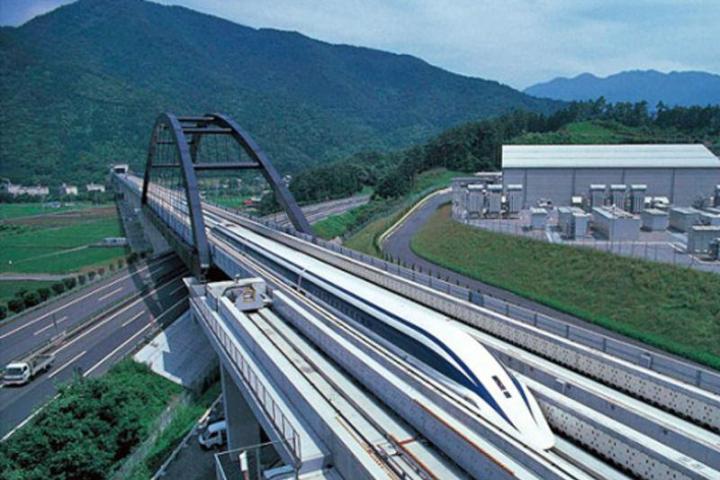
This week, the company broke its own record once again. Running on a test track in central Japan’s Yamanashi prefecture, the company’s prototype L0 Series train clocked in at a speed of 590 kph (366 mph). It’s uncertain how long this new record will stand, however. Speaking to the Wall Street Journal, a CJRC spokesman said that another test run is scheduled for next week, and engineers speculate that the train could reach speeds of up to 600 kph (373 mph).

These are just preliminary tests though. The Japanese government gave CJRC the green light to start building the train line in October 2014, and it’s not expected to start carrying passengers until 2027. Once it opens for business, the train will only operate at speeds of about 505 kph (313 mph). That’s not quite full throttle, but it’s still pretty damn fast. At those speeds, it’ll be able to ferry passengers from Tokyo to Nagoya (about 220 miles) in about 40 minutes. That’s nuts.
Keep your fingers crossed and we might see trains this fast in the US within the next decade. CJRC is reportedly looking to export its maglev train technology to the States for a line that would connect New York to Washington, DC. The plan is still mostly speculative at this point, but lord knows we need all the help we can get. The US’s high-speed rail system is abysmal compared to that of most other wealthy nations.



